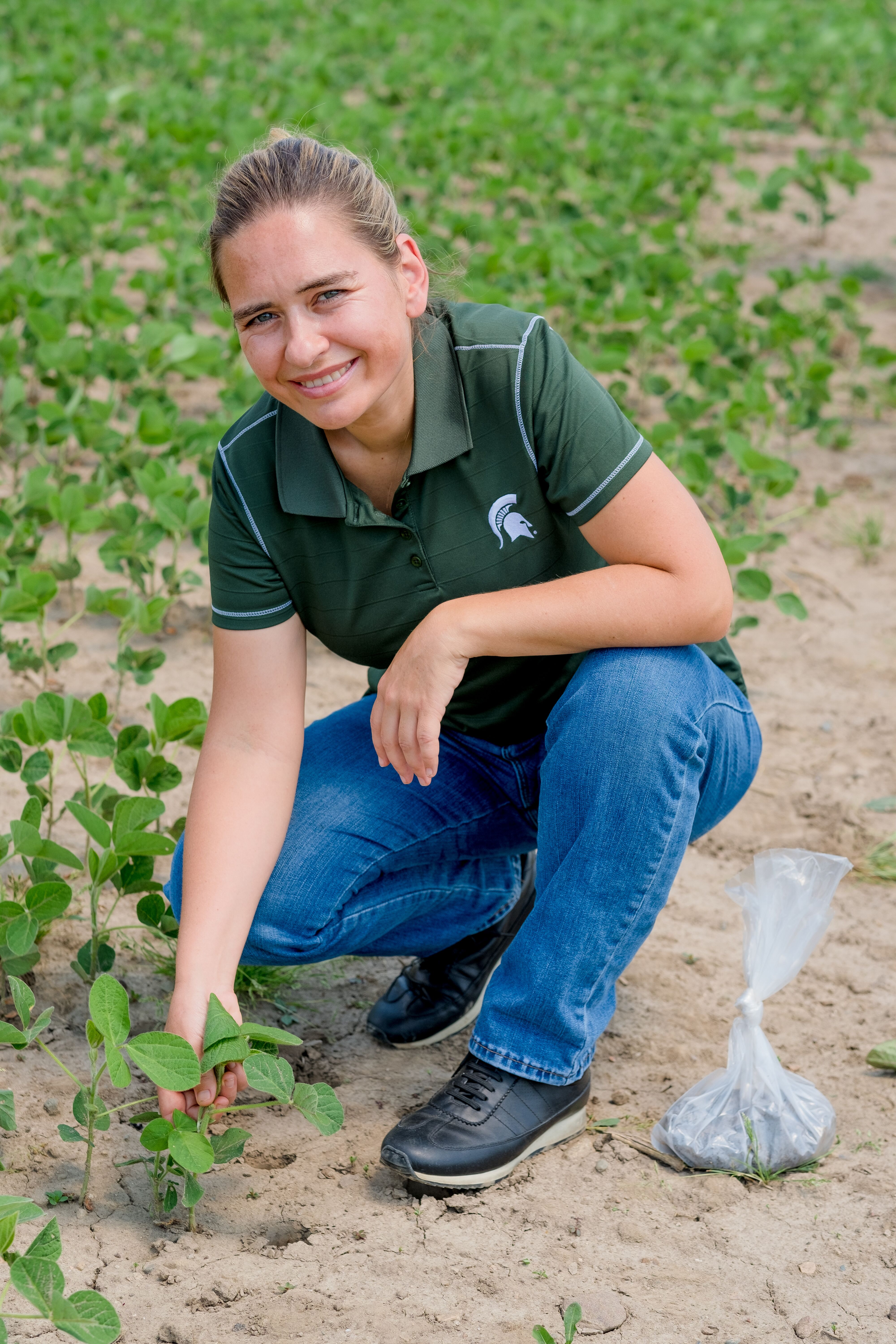MSU researchers awarded $750K grant to develop sustainable management for potato early die complex
The grant is provided by the U.S. Department of Agriculture's National Institute of Food and Agriculture

EAST LANSING, Mich. — A team of Michigan State University researchers has received a $750,000 grant from the U.S. Department of Agriculture’s (USDA) National Institute of Food and Agriculture to develop and evaluate sustainable methods of managing potato early die complex.
Michigan ranks eighth nationally in potato production, with more than 46,000 acres and 1.7 billion pounds harvested each year. According to the Michigan Potato Industry Commission (MPIC), the industry contributes $1.24 billion to the state’s economy. Michigan is also the nation’s leader in producing potatoes for use in chips.
But there are a multitude of challenges facing potato growers. One of the most destructive diseases, potato early die complex, can reduce yields by as much as 50%. It is caused by the convergence of a fungus, Verticillium dahliae, and nematode, Pratylenchus penetrans, which compromises the plant’s health before it’s able to reach maturity. Previous research on the disease has shown that other pathogens may influence it as well.
The new project will be led by Marisol Quintanilla, a nematologist and assistant professor in the MSU Department of Entomology. Other MSU scientists involved include:
- Luisa Parrado, a doctoral student in Quintanilla’s laboratory who helped author the project proposal.
- Henry Chung, an assistant professor in the Department of Entomology.
- Jennifer Pechal, an assistant professor in the Department of Entomology.
- Chris Long, a potato extension specialist in the Department of Plant, Soil and Microbial Sciences.
- Jaime Willbur, an assistant professor in the Department of Plant, Soil and Microbial Sciences.
Guiping Yan, an associate professor from North Dakota State University, will also contribute to the research.
In a recent survey of Michigan potato growers conducted by Willbur, 45% said potato early die complex was one of their top three disease concerns, while 42% stated that current management strategies need to be improved.
The most common current treatment is fumigation, which has negative effects on the soil microbiome and can reduce the efficacy of biological controls. Quintanilla believes these biological controls may hold the key to better management.
“Our previous research has concluded that poultry manure and a compost blend are effective at reducing P. penetrans populations and improving potato yield,” said Quintanilla, whose position is supported in part by MSU AgBioResearch. “The pesticidal effect of these products is not fully understood, but literature suggests that it is attributed to a combination of mechanisms, including the activity of microbial communities that reside in these amendments.”
While soil amendments have typically been used to improve soil health, structure and quality, there is increasing focus on the potential to fight disease. Much of the preliminary research was funded by MPIC and Project GREEEN, a collaboration among MSU, the Michigan Department of Agriculture and Rural Development, and plant agriculture commodity organizations.
The goal of the new project is to provide insights on a compost blend that has the desired antimicrobial characteristics to fend off potato early die complex. The team will work to accomplish this through three objectives:
- Quantify and identify microorganisms derived from manure-based amendments that are playing an important role in penetrans suppression.
- Determine the impact and response of the biological activity of manure-based amendments on commercial potato fields and the suppression of the potato early die disease complex.
- Collaborate with both in- and out-of-state extension educators to disseminate materials for growers.
Research will take place in the field and the laboratory. Two experiments will be hosted at a farm in southwest Michigan with a history of potato early die complex, and these will be replicated in North Dakota.
Extension materials will be created for use online and in print, including a potato management handbook. The handbook will be available in English and Spanish versions.
“Growers will be heavily involved in the process because this research is really geared toward meeting their needs,” Quintanilla said. “We want to make sure the resources we generate are accessible to as many growers as possible.”



 Print
Print Email
Email




